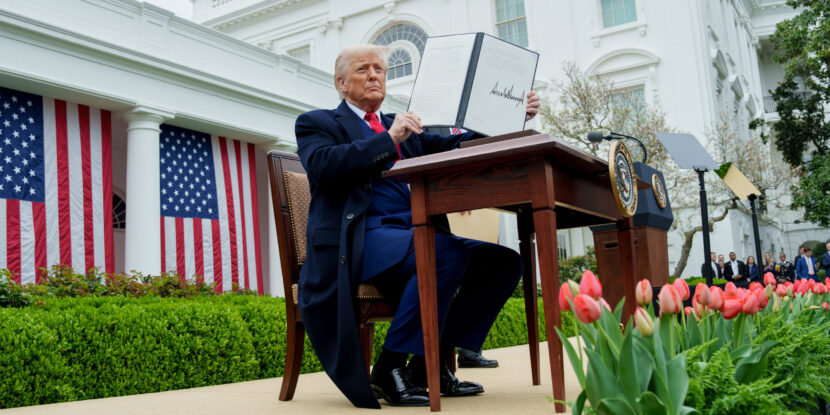PULSE POINTS:
❓What Happened: The Senate approved a resolution to oppose President Donald J. Trump’s tariffs on Canadian imports, with the legislation aimed at repealing the emergency declaration permitting these trade levies.
👥 Who’s Involved: Senators Rand Paul (R-KY), Mitch McConnell (R-KY), Susan Collins (R-ME), and Lisa Murkowski (R-AK) joined with Senate Democrats to support the resolution, which is sponsored by Senator Tim Kaine (D-VA).
📍 Where & When: The Senate passed the measure on Wednesday following President Trump’s “Liberation Day” event at the White House Rose Garden, where he announced that substantial import duties would be imposed on foreign nations with high tariffs on U.S. exports.
💬 Key Quote: Senator Rand Paul stated, “Taxation without representation is tyranny,” characterizing tariffs as a form of taxation and arguing the Constitution forbids one person from enacting taxes.
⚠️ Impact: The resolution likely won’t advance in the GOP-controlled House.
IN FULL:
In a Senate session on Wednesday, a resolution challenging President Donald J. Trump’s tariffs on imports from Canada was advanced to the House of Representatives, with Senators approving the bill in a 51-48 vote. Introduced by Hillary Clinton’s former running mate, Senator Tim Kaine, the measure seeks to revoke the emergency declaration that sanctioned these tariffs by citing the influx of fentanyl across the border. This vote saw four Republican defections, with Sens. Rand Paul, Mitch McConnell, Susan Collins, and Lisa Murkowski joining the Democrat minority to pass the measure.
The resolution’s passage is arguably a symbolic win for Senate Democrats who have worked to derail President Trump’s America First trade agenda. However, while Democrats in the Senate were able to peel off just enough Republican votes to pass the anti-tariff resolution, it is unlikely to advance in the House, where Republican leaders will likely move to kill it before it can move to the floor for a vote.
“[W]e are here before the Senate because one person in our country wishes to raise taxes,” Sen. Paul argued in support of the Democratic resolution on the Senate floor late last night. “Well, this is contrary to everything our country was founded upon. One person is not allowed to raise taxes. The Constitution forbids it.”
“This is a tax, plain and simple,” he reiterated, adding: “Taxation without representation is tyranny.”
While tariffs can technically be categorized as a form of taxation, the import duties are not borne by American consumers for the most part. Instead, foreign companies impacted by tariffs will often absorb a significant portion of the import duty to preserve their market position—essentially opting to take a short-term revenue loss to ensure they maintain their consumer base for the long term.
It is also highly questionable to suggest that there is a lack of “representation” when an elected President with a mandate from the American people raises tariffs.
The Senate’s passage of the anti-tariff resolution came just hours after President Trump announced a 10 percent blanket tariff on all foreign imports and imposed additional, more targeted trade levies on a number of countries that have high tariffs on U.S. goods.




















